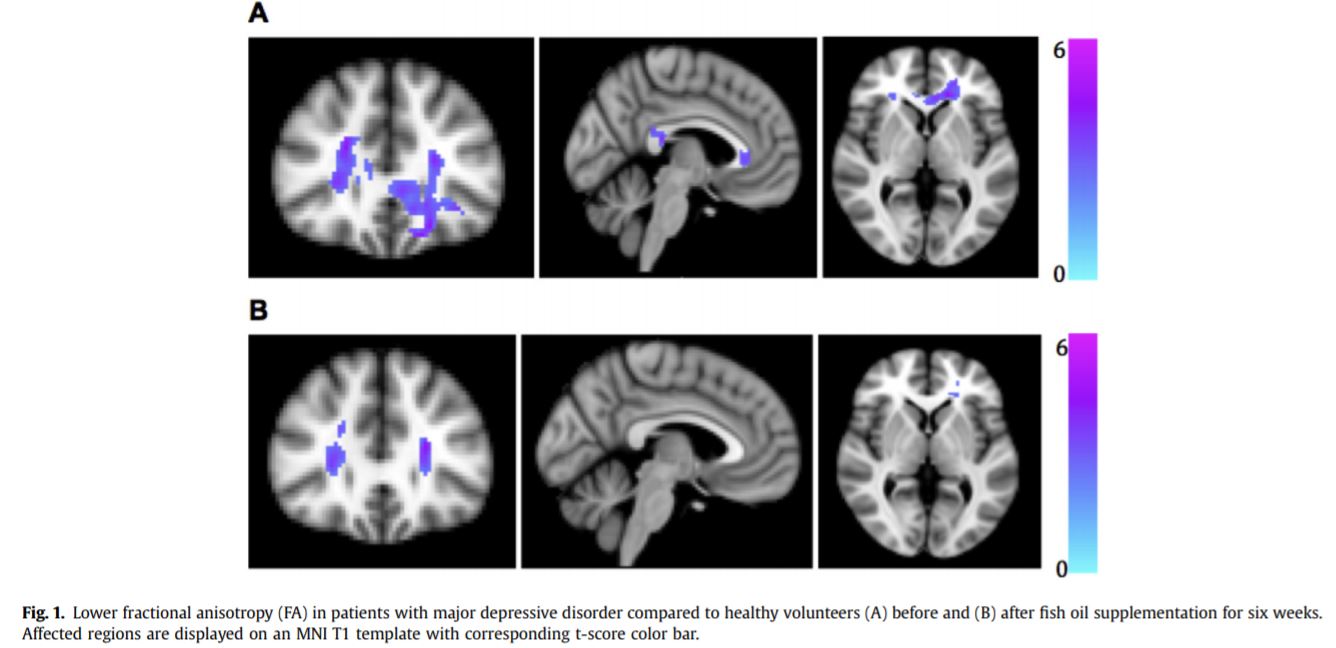Omega-3 polyunsaturated fatty acid supplementation and white matter changes in major depression

Abstract
White matter abnormalities are implicated in major depressive disorder (MDD). As omega-3 polyunsaturated fatty acids (PUFAs) are low in MDD and affect myelination, we hypothesized that PUFA supplementation may alleviate depression through improving white matter integrity. Acutely depressed MDD patients (n=16) and healthy volunteers (HV, n=12) had 25-direction diffusion tensor imaging before and after 6 weeks of fish oil supplementation. Plasma phospholipid omega-3 PUFAs eicosapentaenoic acid (EPA) and docosahexaenoic acid (DHA), and omega-6 PUFA arachidonic acid (AA) levels were determined before and after supplementation using high-throughput extraction and gas chromatography and expressed as a percentage of total phospholipids (PUFA%). Fractional anisotropy (FA) was computed using a least-squares-fit diffusion tensor with non-linear optimization. Regression analyses were performed with changes in PUFA levels or Hamilton Depression Rating Scale scores as predictors, voxel-wise difference maps of FA as outcome, covariates age and sex, with family-wise correction for multiple comparisons. Increases in plasma phospholipid DHA% (but not EPA% or AA%) after fish oil predicted increases in FA in MDD but not HV, in a cluster including genu and body of the corpus callosum, and anterior corona radiata and cingulum (cluster-level p < 0.001, peak t-score = 8.10, p = 0.002). There was a trend for greater change in FA in MDD responders over nonresponders (t ¼ 1.874, df = 13.56, p = 0.08). Decreased depression severity predicted increased FA in left corticospinal tract and superior longitudinal fasciculus (cluster-level p < 0.001, peak t-score = 5.04, p = 0.0001). Increased FA correlated with increased DHA% and decreased depression severity after fish oil supplementation suggests therapeutic effects of omega-3 PUFAs may be related to improvements in white matter integrity.